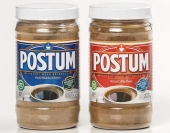




 1
1




We can green the world through random acts of planting.












Rose Pinder wrote:I think honey needs to be considered in the context of how much other concentrated sweeteners are in the diet. If you don't eat sugar or lots of dried fruit etc then 5 tsps honey a day doens't sound that much. But if you are eating lots of other sweet thing, then maybe.
I also look at honey from a permie perspective. To what extent is it a seasonal food? Can the bees locally produce enough honey for the amount we are eating? What if they weren't being fed sugar? A bee person once told me that humans are damaging bees as a species by expecting to have honey all the time on demand as much as we want. They're not really designed to do that. How much honey production is factory farming? These questions affect my food choices about honey too. On the other hand, it's a beautiful food and a good way to bring sweet into the diet in a local food way (compared sugar or maple syrup which doesn't grow here).
A bee person once told me that humans are damaging bees as a species by expecting to have honey all the time on demand as much as we want









Rose Pinder wrote:I think honey needs to be considered in the context of how much other concentrated sweeteners are in the diet. If you don't eat sugar or lots of dried fruit etc then 5 tsps honey a day doens't sound that much. But if you are eating lots of other sweet thing, then maybe.




 2
2





 2
2




 1
1




John Master wrote: only thing I might add is that over 118 degrees wet some of those properties (enzymes) are ruined/reduced. If I add honey to a hot beverage I try to let it get down to drinking temp before adding the honey for best results. our family goes through loads of honey!




 2
2




Pecan Media: food forestry and forest garden ebooks
Now available: The Native Persimmon (centennial edition)


















“Enough is as good as a feast"
-Mary Poppins

|
Character is the architect of achievements - Mark Twain / tiny ad
The new purple deck of permaculture playing cards
https://www.kickstarter.com/projects/paulwheaton/garden-cards
|





